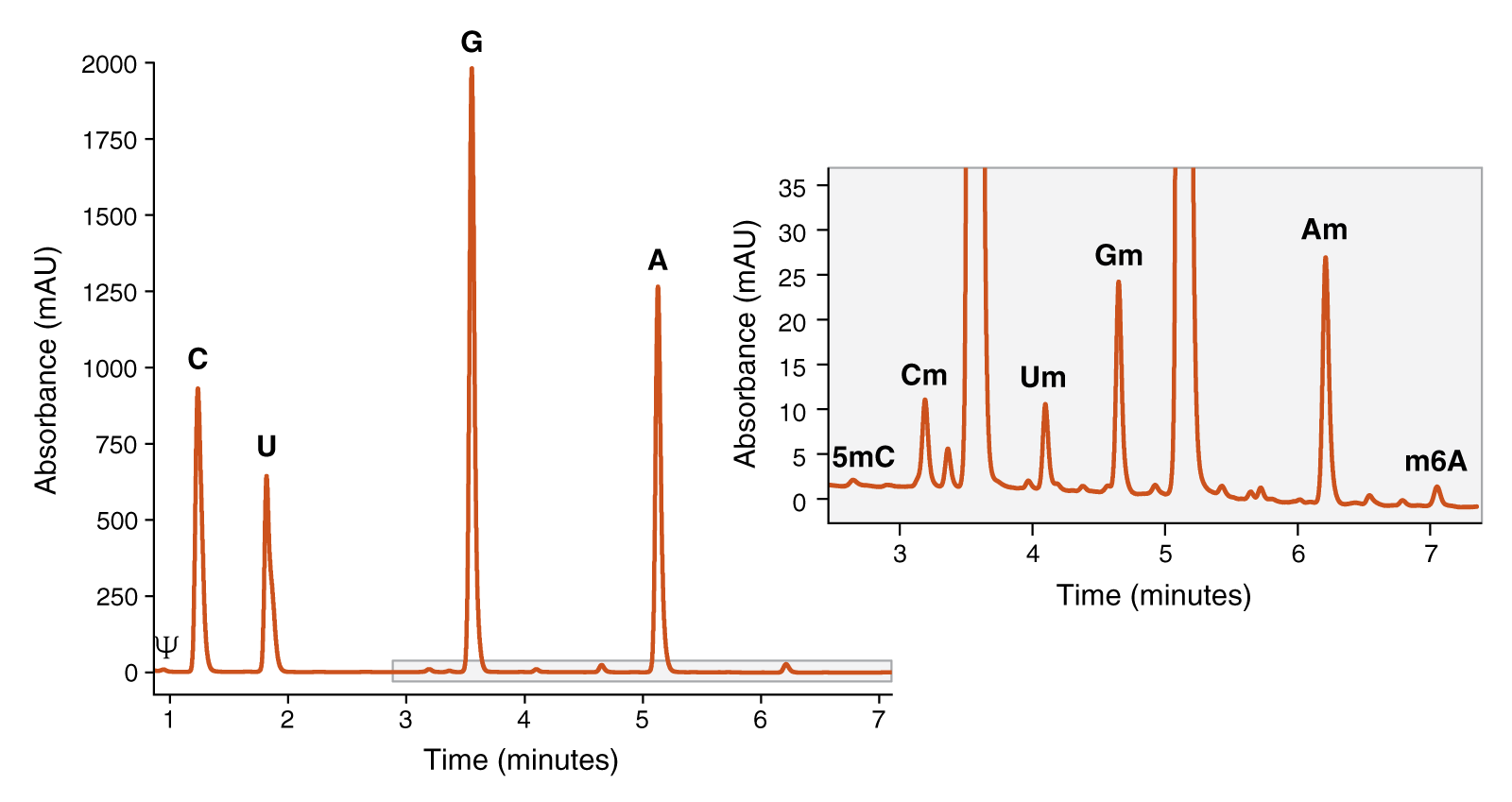Nucleoside and nucleic acid analysis
The inability to fully understand how genomic information is decoded or regulated from DNA and RNA sequences alone has turned epigenetics and epitranscriptomics into some of the most exciting and fastest-growing areas of biological research. One of the mainstays of our research program is the application of multi-stage mass spectrometry, chemical synthesis, and biochemical assays toward the identification, quantification and distribution pattern of DNA and RNA modifications. The lab is engaged in multiple research collaborations investigating nucleic acid modifications in various organisms, as well as discovering and characterizing the enzymes involved in the processes of reading, writing, and erasing these modifications.

Representative LC-MS trace showing the nucleoside content of HEK 293 total RNA
A common shortcoming of the methods for analyzing nucleic acid modifications, particularly chromatographic and mass spectrometric methods, is the laborious sample preparation required to convert genomic DNA and RNA into individual nucleosides. We streamlined this process by combining single-step digestion with direct nucleoside analysis by LC-MS. A product of these efforts, the Nucleoside Digestion Mix, has provided an invaluable tool for genome- and transcriptome-wide profiling of base composition and modification in both diseased and healthy states – as well as measuring how relative nucleobase abundance is affected by temporal and environmental changes. We have also applied this approach to the discovery of novel hypermodified bases in phage strains and the detection of unnatural nucleobases propagated with high fidelity in E. coli.

Workflow for determining a nucleoside composition by LC-MS analysis
Additionally, we leverage our chemical and bioanalytical expertise to support multi-departmental projects at NEB. LC-MS methods have played a critical role in establishing quantitative activity assays for DNA and RNA enzymes targeted to NGS and clinical markets. One example is the NEBNext Enzymatic Methyl-seq Kit (EMseq™). Another is GMP-grade reagents for RNA synthesis, including Vaccinia Capping Enzyme and mRNA Cap 2′-O-Methyltransferase.

